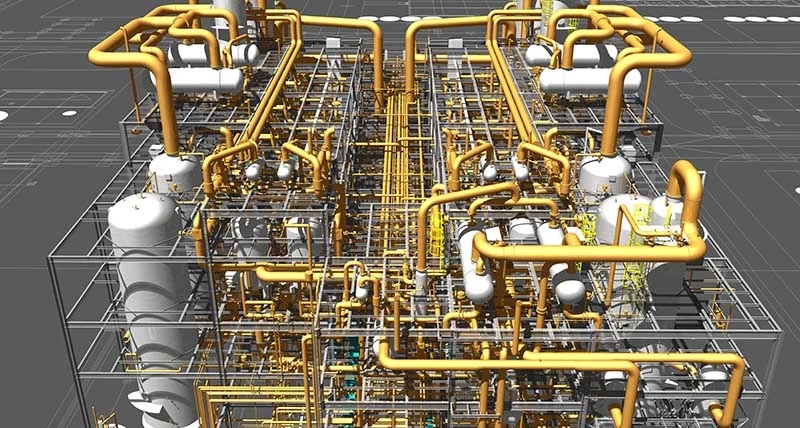In the intricate world of infrastructure, where buildings rise and industries hum with activity, a crucial role operates behind the scenes – the piping engineer. These skilled professionals play a vital part in ensuring the smooth and safe flow of fluids in various systems, from towering skyscrapers to sprawling industrial complexes.
Beyond the Pipes: Piping engineers are much more than just pipe installers. They are the masterminds who:
- Design Efficient Layouts: They meticulously plan the routes of pipes, considering factors like space constraints, flow rates, accessibility for maintenance, and future expansion possibilities. Their expertise in fluid mechanics allows them to optimize layouts for optimal functionality and cost-effectiveness.
- Select the Right Materials: Different fluids and operating pressures necessitate specific materials. Piping engineers possess a deep understanding of material properties, corrosion resistance, and cost factors to select the most appropriate materials for each project. This selection ensures the system\'s longevity, safety, and compliance with relevant regulations.
- Analyze Stress and Strain: Pipes are subjected to various forces during operation, such as pressure fluctuations, temperature changes, and vibrations. Piping engineers utilize specialized software and engineering principles to analyze these stresses and strains, guaranteeing that the pipes can withstand them without failure. This crucial task involves calculations, simulations, and adherence to established codes and standards.
- Create Detailed Documentation: Their meticulous work culminates in the creation of comprehensive technical drawings and specifications. These documents clearly communicate the design intent, including pipe sizes, materials, support details, and connection points. This detailed information is crucial for fabrication, construction, and future maintenance of the piping system.
A Diverse and Demanding Field:
Piping engineers find their expertise in demand across various industries:
- Chemical and petrochemical plants: Designing piping systems for transporting raw materials, intermediate products, and finished goods.
- Oil and gas refineries: Ensuring the safe and efficient conveyance of oil and gas for processing and distribution.
- Power plants: Designing piping systems for delivering fluids for power generation and cooling systems.
- Building services: Crafting efficient piping systems for water supply, air conditioning, and heating in residential and commercial buildings.
- Marine engineering: Contributing to the design of piping systems for ships and offshore platforms.
A Rewarding Career Path:
A career in piping engineering offers a unique blend of intellectual challenge, practical application, and creative problem-solving. It is a rewarding field for individuals who enjoy meticulous work, possess excellent analytical skills, and thrive in a collaborative environment. The ability to work effectively with other engineers, draftspersons, and construction personnel is essential for success.
The Evolving Landscape:
The field of piping engineering is constantly adapting to embrace new technologies:
- 3D Modeling Software: Advanced software allows for more efficient and accurate design, facilitating clash detection, real-time collaboration, and visualization of the entire piping system.
- Sustainable Materials: The focus on environmental responsibility is driving the development of more eco-friendly materials for piping systems.
- Automation and Robotics: Automation in fabrication and construction processes is streamlining the execution of piping projects.
Beyond the Technical Expertise:
Beyond technical proficiency, successful piping engineers possess:
- Strong Communication Skills: The ability to clearly communicate complex design concepts to both technical and non-technical audiences is crucial for successful project execution.
- Teamwork and Collaboration: Piping engineers often work as part of larger teams, collaborating with other engineers, construction personnel, and stakeholders to ensure project success.
- Problem-Solving Skills: The ability to think critically and find solutions to unexpected challenges is essential in this dynamic field.
Conclusion:
Piping engineers play a vital role in the smooth functioning of our modern world. Their expertise ensures the safe and efficient flow of fluids in various systems, from our homes and workplaces to vital industrial processes. As the field evolves, piping engineers continue to adapt and innovate, shaping the future of infrastructure with their meticulous designs and problem-solving prowess.


